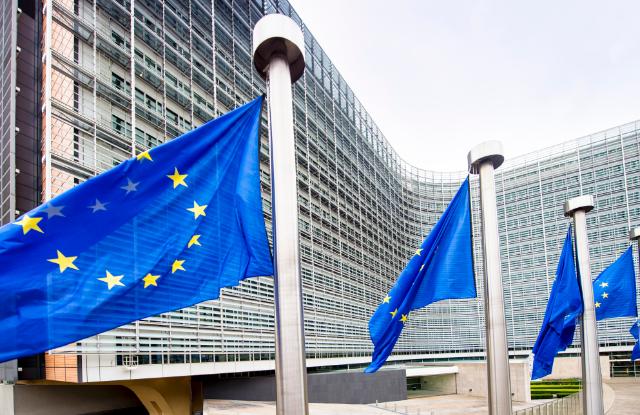European Commission Vice-President Margaritis Schinas sent a letter on Monday to the board of the European Broadcasting Union (EBU) demanding an explanation why the EU flag was banned from the venue of the Eurovision 2024 song contest last week in Malmö, Sweden.
In his letter, seen by The Brussels Times, the Vice-President for Promoting our European Way of Life, writes that for nearly seven decades the Eurovision has embodied the values of diversity and cultural exchange – values shared and championed by the EU.
It was therefore with regret that he learned about the policy enforced by the EBU this year of banning participants from waving the EU flag during the final of the song contest. He twitted already directly after the final against the flag ban.
“Less than a month before the European elections and in times of geopolitical turbulence, with the EU being targeted by malicious and authoritarian actors, EBU’s decision contributed to discrediting a symbol that brings all European together.”
His letter was directed to EBU president Ernotte Cunci, a former French TV manager, and Martin Österdahl, a Swedish author and television executive. Österdahl, executive supervisor for the Eurovision, did no reply to a request for comment from The Brussels Times. The two of them are now asked by the Commission to “explain the rationale behind their decision and attribute responsibility to where it lies”.
The EBU has officially only banned political symbols and flags of non-participating countries in the arena.
It made an effort to depoliticize the Eurovision in the spirit of the slogan “United by Music” but many national jury groups were apparently influenced by the protests against Israel’s participation in the song contest and allocated 0 points to the Israeli song according to the voting results released by the EBU, in stark contrast to the televote.
“I for one would expect to see the values of peace, tolerance and inclusiveness afforded greater deference in the future,” the Vice-President concluded the letter.
Asked about the flag ban at yesterday’s Commission press conference, chief spokesperson Eric Mamer replied that he found it completely regrettable that the flag, which is also the flag of the member states of both the EU and the Council of Europe (CoE), was not shown. The flag is often hoisted outside public buildings in the EU member states.
The Flag of Europe consists of a circle of 12 golden stars on a blue background. It was created in 1955 by the CoE and adopted by the EU, then the European Communities, in the 1980s.
M. Apelblat
The Brussels Times

